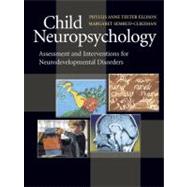
| List of Figures | p. xi |
| List of Tables | p. xiii |
| Foreword | p. xv |
| Preface | p. xix |
| Acknowledgments | p. xxi |
| Anatomy and Physiology | |
| Introduction to Child Clinical Neuropsychology | p. 1 |
| Theoretical Orientation: An Integrated Paradigm | p. 1 |
| Emergence of Child Clinical Neuropsychology | p. 1 |
| Perspectives for the Study of Childhood Disorders | p. 2 |
| Neuropsychological Perspectives on Assessment and Intervention | p. 8 |
| Professional Training | p. 11 |
| Overview of Book Chapters | p. 13 |
| Functional Neuroanatomy | p. 15 |
| Structure and Function of the Neuron | p. 15 |
| Neuronal Development | p. 19 |
| Structure and Function of the Human Brain | p. 22 |
| Structure and Function of the Brain Stem | p. 23 |
| Role and Function of the Meninges | p. 28 |
| Development of the Central Nervous System | p. 28 |
| Structure and Function of the Forebrain | p. 29 |
| Cerebral Hemispheres | p. 31 |
| Structure and Function of the Cortex | p. 34 |
| The Development of Higher Cortical Regions | p. 39 |
| Genetic Factors Affecting Brain Development | p. 44 |
| The Interaction of Biological and Environmental Factors on Brain Development | p. 46 |
| Clinical Assessment | |
| Electrophysiology and Neuroimaging Techniques Neuropsychology | p. 51 |
| Electrophysiological Techniques | p. 51 |
| Neuroimaging Techniques | p. 57 |
| Neuroradiological Techniques | p. 62 |
| Integrating Neurological, Neuroradiological, and Psychological Examinations in Neuropsychological Assessment | p. 65 |
| The Neurological Examination | p. 65 |
| When to Refer for a Neurological Evaluation | p. 66 |
| Neuroradiological Evaluation | p. 68 |
| Neuropsychological Assessment | p. 69 |
| Integration of Neurological, Neuroradiological, and Neuropsychological Data | p. 69 |
| Psychological Assessment of Children with Neurodevelopmental, Neuropsychiatric, and Other CNS Disorders | p. 70 |
| Impact of Psychological Functioning on Neuropsychological Results | p. 76 |
| Neuropsychological Assessment Approaches and Diagnostic Procedures | p. 78 |
| Approaches to Child Clinical Neuropsychological Assessment | p. 78 |
| Luria-Nebraska Assessment Procedures for Children | p. 87 |
| Luria-Nebraska Neuropsychological Battery-Children's Revision | p. 92 |
| Neuropsychological Protocol: Austin Neurological Clinic | p. 97 |
| Boston Process Approach | p. 97 |
| A Transactional Approach to Neuropsychological Assessment | p. 103 |
| Childhood and Adolescent Disorders | |
| Severe Neuropsychiatric and Externalized Disorders of Adolescence and Childhood | p. 107 |
| Biochemical and Neuropsychological Models of Psychiatric Disorders of Childhood | p. 107 |
| Tourette Syndrome | p. 112 |
| Autism/Pervasive Developmental Disorders | p. 114 |
| Asperger's Syndrome | p. 119 |
| Attention Deficit Hyperactivity Disorder | p. 120 |
| Conduct Disorder | p. 129 |
| Neuropsychological Correlates of Childhood and Adolescent Psychiatric Disorders: Internalized Disorders | p. 135 |
| Internalizing Disorders | p. 136 |
| Language-Related and Learning Disorders | p. 147 |
| Neurodevelopmental Disorders of Childhood | p. 147 |
| Learning Disabilities | p. 151 |
| Written Language Disorders | p. 162 |
| Nonverbal Learning Disabilities | p. 165 |
| Summary | p. 168 |
| Metabolic, Biogenetic, Seizure, and Neuromotor Disorders of Childhood | p. 169 |
| Metabolic Disorders | p. 169 |
| Chromosomal Syndromes | p. 172 |
| Neurocutaneous Syndromes/Disorders | p. 176 |
| Seizure Disorders | p. 180 |
| Cerebral Palsy | p. 187 |
| Conclusions | p. 192 |
| Acquired Neurological Disorders and Diseases of Childhood | p. 193 |
| Traumatic Brain Injury | p. 193 |
| Fetal Alcohol Syndrome | p. 201 |
| Cocaine-Exposed Infants | p. 204 |
| Childhood Cancer | p. 209 |
| CNS Infectious Diseases: Meningitis and Encephalitis | p. 213 |
| Summary and Conclusions | p. 215 |
| An Integrated Intervention Paradigm | |
| Neuropsychological Intervention and Treatment Approaches for Childhood and Adolescent Disorders | p. 217 |
| Multistage Neuropsychological Model: Linking Assessment to Intervention | p. 217 |
| Developmental Neuropsychological Remediation/Rehabilitation Model for Children and Adolescents | p. 221 |
| The Reitan Evaluation of Hemispheric Abilities and Brain Improvement Training (REHABIT) | p. 222 |
| Neuropsychological Framework for Remediation | p. 222 |
| Specific Strategies for Cognitive-Academic, Psychosocial, and Attentional Disorders | p. 223 |
| Classroom and Behavior Management | p. 228 |
| Pharmacological Interventions | p. 231 |
| Home-School-Physician Partnerships | p. 236 |
| Summary and Conclusions | p. 239 |
| Clinical Case Studies | |
| Clinical Case Studies | p. 241 |
| Intractable Seizure Disorder | p. 241 |
| Severe Developmental Dyslexia | p. 244 |
| Traumatic Brain Injury | p. 247 |
| Severe Expressive Aphasia and Motor Apraxia with Pervasive Developmental Delay | p. 249 |
| Developmental Progress | p. 252 |
| Specific Recommendations | p. 253 |
| Glossary | p. 254 |
| References | p. 257 |
| Name Index | p. 313 |
| Subject Index | p. 325 |
| Table of Contents provided by Ingram. All Rights Reserved. |
The New copy of this book will include any supplemental materials advertised. Please check the title of the book to determine if it should include any access cards, study guides, lab manuals, CDs, etc.
The Used, Rental and eBook copies of this book are not guaranteed to include any supplemental materials. Typically, only the book itself is included. This is true even if the title states it includes any access cards, study guides, lab manuals, CDs, etc.